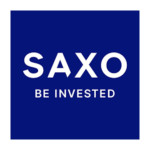A Better Deal For Your Money!
Investment Offer
Up to 7.16% interest pa with quarterly payments
Quarterly interest even if the FTSE falls 15%…
7.16% interest each year is a strong headline return, especially when this can be achieved even if the FTSE 100 Index falls up to 15%.
“The combination of high interest potential and quarterly payments, along with a defensive feature meaning you get paid even if the stock market falls 15%, means we expect this plan to be popular.”
Oliver Roylance-Smith, head of savings and investment
The Meteor FTSE Quarterly 85 Income Kick Out Plan pays 1.79% at the end of each quarter, provided the FTSE 100 Index has not fallen more than 15% below its level at the start of the plan – that’s a potential 7.16% interest per year. If the Index does close below this level, no interest is paid for that quarter.
The plan has a maximum term of 9 years, but also offers the opportunity to receive your initial capital back in full before then if the FTSE is at or above its opening level at the end of each quarter (from year 2 onwards). If the plan does not end early, your initial capital is returned in full provided the FTSE has not fallen by more than 35% at the end of the plan term. If it has, your initial investment will be reduced by 1% for each 1% fall, so your capital is at risk.
Available for ISA, ISA transfers and non-ISA investments
Capital is at risk. This is a structured investment plan that is not capital protected and is not covered by the Financial Services Compensation Scheme (FSCS) for default alone. Income payments are not guaranteed and there is a risk of losing some or all of your initial investment due to the performance of the FTSE 100 Index.
Investment Platform Offers
| Join today & get £50 FREE trading credit (T&Cs apply). More than 40,000 UK & international investment options Invest from £1 Features: SPECIAL OFFER: The best things in life are free trades. Open an ii Trading Account and get £100 free trades. Offer ends 30 April. Capital at risk. Terms Apply |
Go to website » | |
| Trusted by over 400,000 people. Fully FSCS protected. ADVFN Winner 2022 “Best Low Cost Stockbroker”. Capital at risk. | ||
| Invest in over 6,100+ US, UK & EU stocks & ETFs commission-free
Features: |
Go to website » | |
| Trusted by over 1.5 million people. FSCS protected. Capital at risk. Other charges may apply. No subscription required | ||
| Choose from over 2,000 funds From £25 per month Features: |
Go to website » | |
| Mobile app – manage your portfolio on the move. FSCS protected. Capital at risk. | ||
| Trade UK & International shares for £6. No charge for fund trades Features: One simple customer fee of 0.25% p.a. 8,000+ investments to choose from. |
Go to website » | |
| Barclays gives you the investment choice and research tools you need to grow your money. Over 300,000 people have used our award winning service, expert insights and resources to help work towards their financial goals. Voted Best Stockbroker at the Online Money Awards 2023. Capital at risk. | ||
| Access over 3,000 funds. UK & Overseas shares. Invest from £100 or £25 pm Features: |
Go to website » | |
| Hargreaves Lansdown is the UK’s No 1 platform for private investors trusted by over 1.6 million customers. Capital at risk. | ||
| Access to 70,000+ instruments, smart trading tools & market insights
Investment platform for different needs and experience levels |
Go to website » | |
| Saxo serve clients in 170 countries, hold 70+ bn GBP in assets under management & process 1m transactions daily. FCA regulated. Capital at risk. | ||
| Buy & trade over 3500+ UK, EU and US stocks with low 0.35% currency conversion.
Features: |
Go to website » | |
| Multi-currency investing, your money goes even further without the constant foreign exchange fees. Deposit, hold and invest in international stock markets in EUR, GBP and USD — all under one roof. Shares have a low, transparent execution cost. Investing in your local ETFs is completely free of Lightyear fee (other fees may apply). Earn interest on uninvested cash. Access live news feeds about the stocks you own, as well as professional analyst ratings & price targets. Lightyear is now live on web and has launched earnings calls audios. Capital at Risk. We, Fair Investment Company, will be paid a referral fee if you open an account and deposit funds through some of the links on this page. This includes financial promotion. | ||
| Invest in real stocks with 0% commission*. Over 5300 instruments…
Features: |
Go to website » | |
| World class trading platform: Easy to use, fully customisable, superior execution speeds, performance statistics. Applying for an account is quick and easy with a secure online form, and you could be trading within minutes. Wide range of instruments -forex, indices, commodities, shares and ETF’s. Multilingual customer support team is ready to help you – 24h hours a day from Monday to Friday. *For monthly turnover up to 100,000 EUR (then comm. 0.2%, min. 10 EUR). Capital at risk | ||
| Buy & trade over 17,000+ shares online. Zero commission on US shares. FX conversion fee of just 0.5%. Invest from £1 Features: |
Go to website » | |
| IG offer exclusive out of hours giving access to 70+ shares when the market is closed. 313,000+ clients worldwide. FCA Regulated. Capital at risk. Spread bets and CFDs are complex instruments and come with a high risk of losing money rapidly due to leverage. 69% of retail investor accounts lose money when trading spread bets and CFDs with this provider. You should consider whether you understand how spread bets and CFDs work, and whether you can afford to take the high risk of losing your money | ||
| Choice of 500 low cost ETF Funds Invest from £1 Features: |
Go to website » | |
| The InvestEngine offers investors a low cost ETF investment platform. Build your own portfolio commission free or leave it to their experts for just 0.25%. Build your own low cost portfolio using managers such as Vanguard, iShares & Invesco. FSCS protected. Capital at risk. | ||











